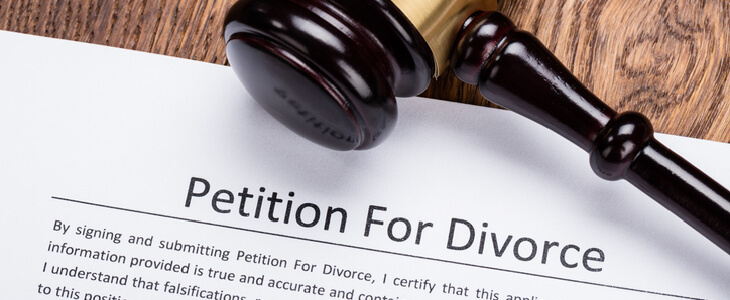Divorce papers, much like marriage certificates, are considered public records in Arizona. The purpose of making these and other court documents available to the public is to ensure transparency of the court system. The downside to doing so is that private, potentially embarrassing personal information is subject to public scrutiny. With the help of an experienced divorce attorney, however, it may be possible to seal divorce records in some situations.
At Cohen Family Law, we help clients throughout Arizona navigate difficult family transitions such as divorce. As attorneys, we are legally and ethically obligated to maintain the confidentiality of every family law matter that we handle, even though divorce records are eventually made available to the public.
Whether you are considering divorce or need assistance having your divorce records sealed, we can help. Rest assured, we will treat you with the dignity and respect you deserve and work to preserve your privacy. Contact our Phoenix office today for a consultation.
Sealing Divorce Records in Arizona
Because divorce papers are a natural part of the public record, a family court judge will not automatically seal divorce records. Instead, one or both parties to the divorce must request the court to seal the record by filing a Motion to Seal. Filing such a motion does not guarantee that the records will be sealed; it’s ultimately the judge’s decision.
In making this decision, the judge must determine whether the potential damage to one or both parties outweighs the accepted practice of making court records open to public scrutiny. Moreover, the judge will consider whether the Motion to Seal is tailored in a highly specific way. In any event, the court will rarely seal an entire divorce case, but it may agree to seal specific aspects of the divorce record when the request has merit and is narrowly tailored.
Reasons for Sealing Divorce Records in Arizona
If you plan to ask the court to seal your divorce papers, your request must be as specific as possible, tailored to the details of the situation and the reasoning behind sealing public records. For example, a request for divorce records to be sealed in their entirety to protect children might be denied, but a request to seal parts of the record that specifically name them might pass muster with the court.
There are several reasons a judge may agree to seal divorce records, including:
- To protect the identity of children
- To protect victims of domestic violence or child sexual abuse
- To keep sensitive information (e.g. bank accounts, Social Security numbers) private
- To protect confidential business information
- To prevent disclosure of false allegations that may slander someone
While the courts are sensitive to potentially damaging information, details and documents that might lead to public embarrassment will not outweigh the presumption that divorce papers are a matter of public record. Notably, if the judge grants the Motion to seal, the divorce records will be redacted rather than completely closed to the public.
Other Ways to Keep Your Divorce Records Private
If it is not possible to seal your divorce records, there are other ways to protect the details of your divorce from the peering eyes of nosey neighbors and the general public. One way to minimize the public’s access to your divorce papers is by negotiating a divorce settlement instead of going to trial.
Without a trial, any false allegations will not be entered into the record. Also, details of your marital property division, alimony agreement, and decisions about parental decision-making and parenting time will be kept private. The only document that will become part of the public record will be your divorce agreement and the associated decree.
Another option to consider is collaborative divorce. In this process, both parties and their attorneys agree in writing not to go to court and to seek a negotiated agreement regarding the terms of the divorce. The collaborative divorce process requires both parties to:
- Disclose all relevant financial information and documents
- Respect each other’s priorities
- Refrain from taking advantage of any mistakes by the other side
By focusing on cooperation, collaborative divorce helps both parties save time and expenses and makes the process less stressful. Collaborative divorce can be especially beneficial if there are children involved because it protects them from a lengthy and acrimonious conflict that may harm their sense of family security. Ultimately, collaborative divorce is a more private process that will enable you to move on to the next chapter of your life with confidence.
Contact Our Arizona Divorce Attorney To Keep Your Divorce Papers Private
Ending a marriage is an emotional challenge that can become more of a burden when a divorce is subjected to public scrutiny. The best way to keep your divorce records private and preserve your dignity is to have a compassionate divorce attorney by your side. When you meet with us, we will provide you with a secure environment in which you can make informed decisions about your future and protect your family’s privacy. Contact us today to learn how we can help.
Cohen Family Law services clients with their divorce papers needs throughout the Phoenix, Arizona area including Anthem, Chandler, Gilbert, Glendale, Goodyear, Laveen, Mesa, Peoria, Scottsdale, Surprise, and Tempe.

